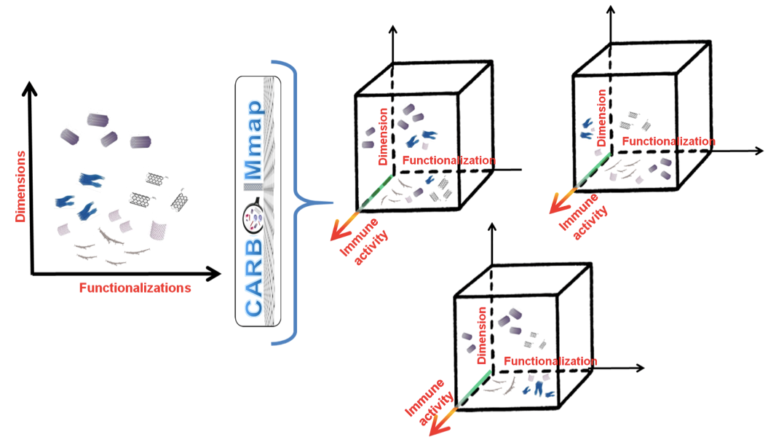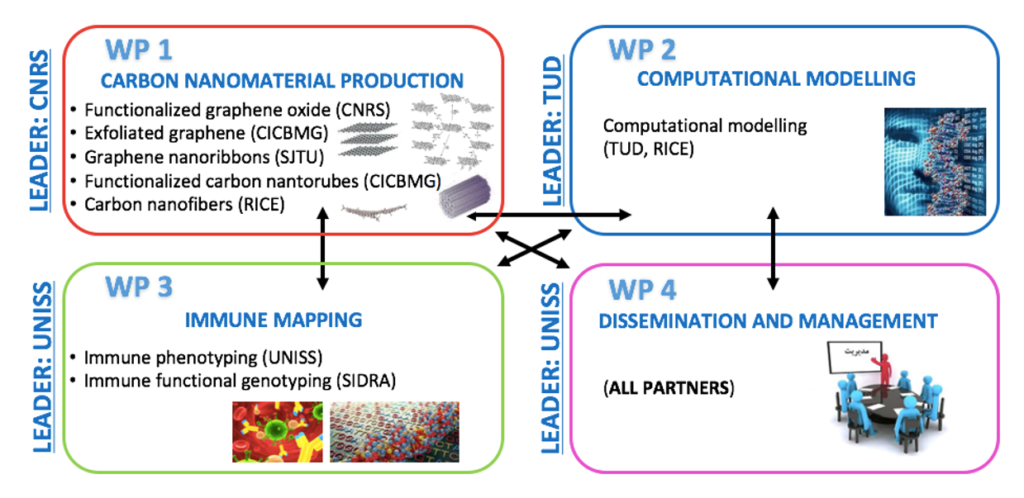
The EU project “IMmune activity MAPping of CARBO nanomaterials – Carbo-IMmap” has been funded by the EU call RISE-MSCA actions under Horizon 2020. It involves key players in Europe, US, Qatar and China with the aim to advance the field of carbon nanomaterial development and their exploitation biomedical applications. The long-range goal of Carbo-IMmap is to develop a functional pipeline for the immune-characterization of carbon nanomaterials.

Long-term nanobiotechnology goal: The long-range goal of Carbo-IMmap is to develop a functional pipeline for the immune-characterization of carbon nanomaterials.
Long-term nanomedical goal: The accurate immuno-characterization of the tested materials on the basis of intrinsic physical-chemical features and immunological properties will open breakthrough perspectives for the development of new therapeutic approaches.
Key implementation aspects: The innovative pipeline will ground on computational modelling systems to predict the materials behaviours in the biological fluids and their interaction with biomolecules.
Scientific impact: The successful development and optimization of the functional pipeline for the characterization of the immune activity of newly synthesized, stable carbon nanomaterials will greatly advance the engineering process of carbon nanomaterials.
Impact on early-stage researchers: This program involves key participation by young researchers with exceptional scientific backgrounds.
Effective intersectorial dimension: The project is driven by knowledge exchange and the expertise of an interdisciplinary team comprised of early-stage and experienced researchers from Universities and Research Centres.
Interdisciplinary dimension: Complementary research programs will support each step of the developmental and applicative parts of the project towards achievement of the objectives.
International dimension: Funding of this program will enable long-term, transformative research collaborations that will contribute to the integration and collaboration of research groups of four European Countries (Germany, Italy, France and Spain) and three key non-EU Countries: USA, China and Qatar.
Project overview

